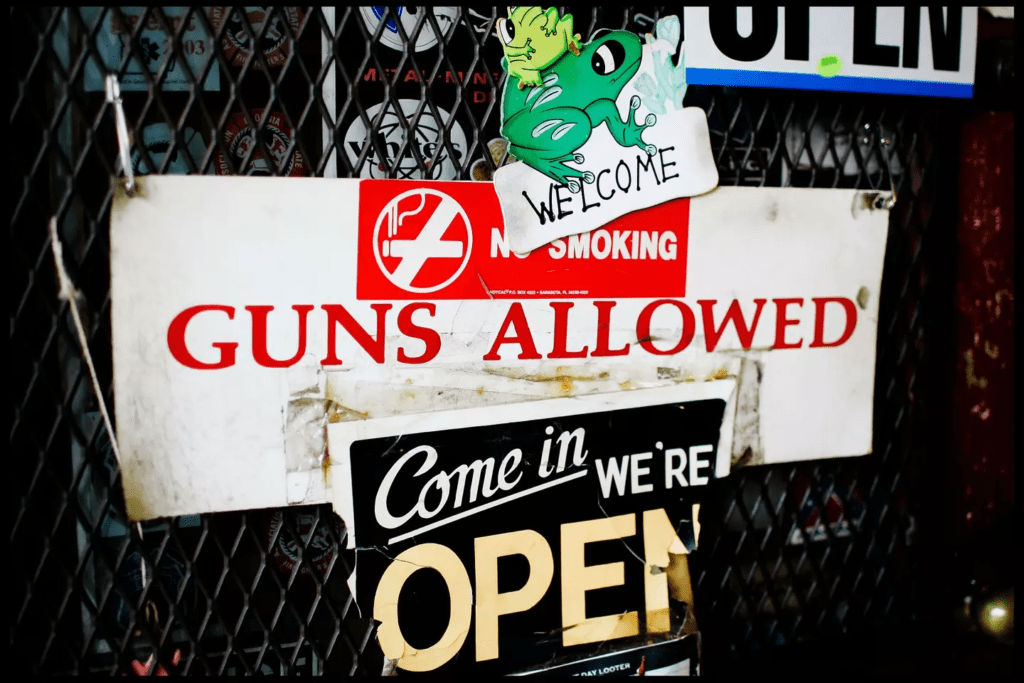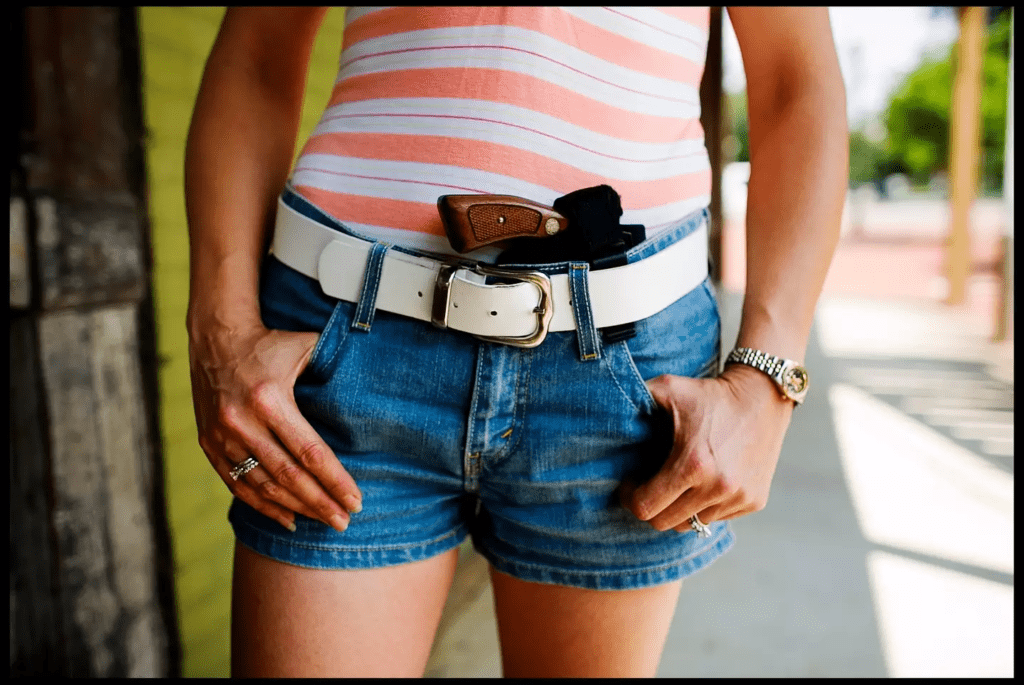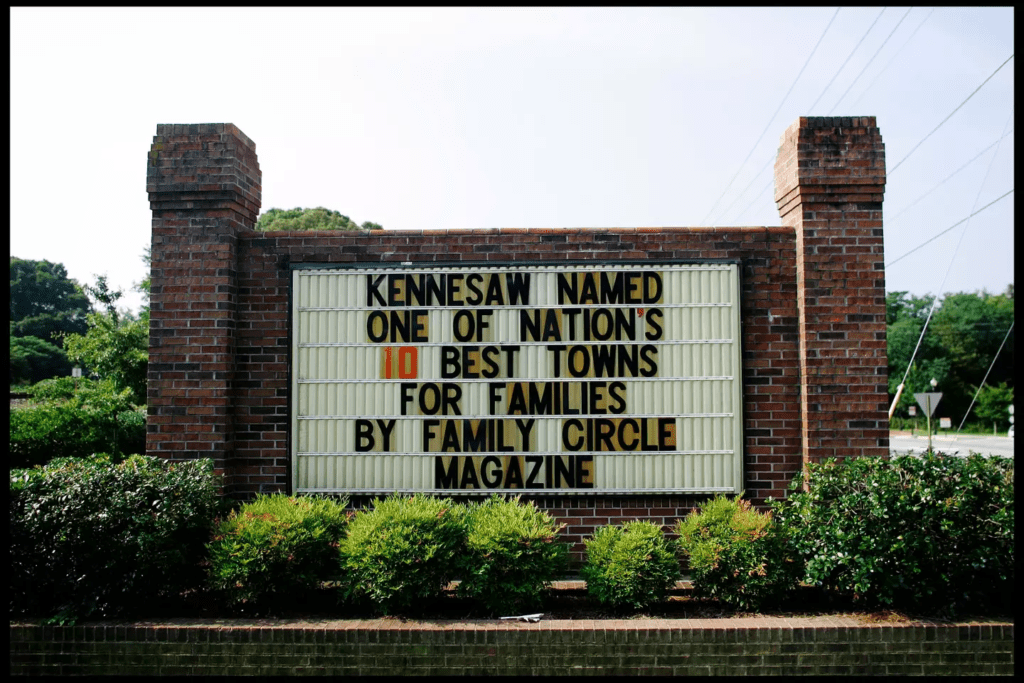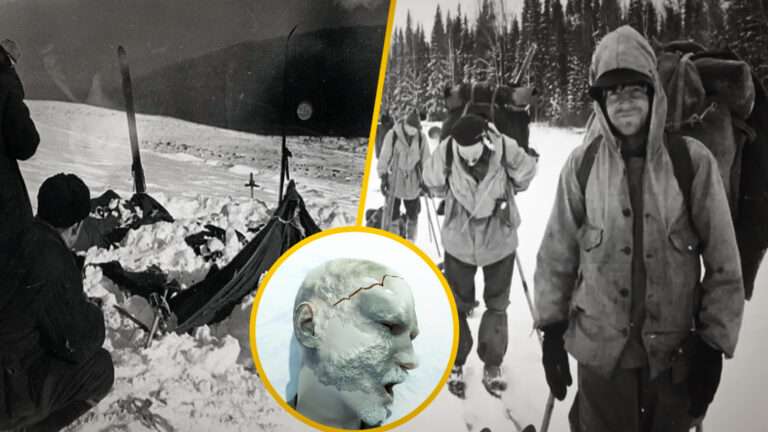The Town That Mandates Gun Ownership: Exploring Kennesaw’s Controversial Law and Its Impact

In a nation where the right to bear arms is both a constitutional guarantee and a hotly contested issue, Kennesaw, Georgia, stands out with a unique legal requirement. This suburban city has a law that mandates every head of household to own a firearm, stirring a blend of curiosity, support, and opposition. What led to this unusual law, and how has it affected the town’s residents and reputation? This blog will delve into Kennesaw’s firearm mandate, its historical context, the reactions from residents, and the broader implications it has for the ongoing debate about gun ownership in America.
The Law and Its Provisions
Kennesaw’s gun ownership law is codified under Article II – Firearms, Section 34-21 of the city’s Municode. The law states:
“In order to provide for the emergency management of the city, and further in order to provide for and protect the safety, security, and general welfare of the city and its inhabitants, every head of household residing in the city limits is required to maintain a firearm, together with ammunition.”

This legislative act mandates that all residents maintain a firearm for self-defense purposes, intending to enhance the overall safety and security of the town. The law includes specific exemptions, such as individuals with disabilities preventing them from safely using firearms, those with religious or conscientious objections, and people living in poverty or with felony convictions. While the law is not as extreme as it may seem, it does generate debates around the nature of personal rights and civic duties within a community, making it a topic of discussion both locally and nationally.
Historical Context and Rationale
The law was enacted in 1982 as a response to a gun ban in Morton Grove, Illinois. It was designed as both a deterrent to crime and a political statement about gun rights. Lieutenant Craig Graydon of the Kennesaw Police Department explained to CNN that the law was intended to signal the town’s commitment to personal safety and self-defense. The symbolic move was seen as an assertive response to policies that restricted gun ownership in other cities across the U.S. Mayor Derek Easterling emphasized that the law is not just symbolic but a reflection of the town’s ethos. He stated, “I’m not into things just for show,” indicating that the law is seen as a practical measure, not merely a political gesture. The town’s leadership at the time hoped that this bold policy would send a message about the importance of self-reliance, while also encouraging citizens to take their safety into their own hands.
Mixed Reactions from Residents
The reaction to Kennesaw’s gun mandate has been divided. While some residents appreciate the sense of security it provides, others are uncomfortable with the law’s implications. On one side, the mandate is seen as an essential measure for community protection and as a way to ensure that all households have the ability to defend themselves should the need arise. However, on the other hand, some argue that mandating gun ownership infringes on personal freedoms and creates a potential danger by introducing more firearms into homes that may not be prepared to handle them responsibly.

- Wayne Arnold, a local resident, clarified that the town doesn’t resemble the “Wild West” as some might imagine. He emphasized that the law is focused on home defense rather than encouraging public displays of firearms. This distinction is important, as many people mistakenly assume that a gun-centric town fosters a violent or chaotic atmosphere. Instead, the intention is to create a sense of security and preparedness in the event of an emergency, not to glorify gun culture.
- Lt. Graydon observed that the law has fostered ongoing discussions about crime control and gun safety within the community, keeping these topics at the forefront of residents’ minds. These conversations help create a culture of responsibility when it comes to gun ownership. Local authorities have encouraged training programs, firearm safety workshops, and community discussions on responsible gun use.
- Cris Welsh, a mother of two, expressed her discomfort with the law, describing it as an outdated measure that makes some residents feel uneasy. She fears that more guns in homes will lead to accidental shootings or escalate already tense situations, ultimately making the community less safe. For some parents like Welsh, the law represents an unnecessary step that puts children and families at risk, raising valid concerns about the potential consequences of widespread gun ownership.
- Blake Weatherby, a groundskeeper at Kennesaw First Baptist Church, argued that the town’s low crime rate is more about the community’s attitude toward guns than the presence of firearms themselves. Weatherby suggested that it’s the town’s deep-seated culture of responsibility and respect for firearms that is the true factor in crime reduction, rather than the mere presence of guns. His view reflects a belief that the focus should be on how individuals approach gun ownership—emphasizing safety, education, and responsible use—rather than the law simply mandating it.
Social Media Reactions to Kennesaw’s Gun Law
The law has also generated significant discussion on social media, with people sharing their views from across the spectrum. On Twitter, Facebook, Reddit, and Instagram, Kennesaw’s law is discussed with varying levels of enthusiasm, concern, and intrigue. These platforms have allowed people from all walks of life to engage with the subject, offering an unfiltered view of public opinion.
- @JohnDoeFreedom: “Kennesaw’s gun law is a bold statement for personal liberty. In times of rising crime, this is a step in the right direction.” Read the discussion here.
- @JaneSmithSafety: “I can’t believe there’s a town that mandates gun ownership. This seems like a recipe for disaster. What about those who don’t feel safe with guns at home?” Join the conversation.
- @LibertyLover88: “Interesting approach by Kennesaw. Wonder if this law actually deters crime or just stirs more debate.” Check the thread.
- @MomsAgainstGuns: “As a mother, I can’t support Kennesaw’s law. More guns don’t make us safer, they make us more vulnerable.” Explore more views.
- @PatriotDefender: “Kennesaw is showing America how it’s done! Protecting your home is a right, not a privilege.” See more reactions.
These posts illustrate the range of opinions on Kennesaw’s gun mandate, reflecting the broader national debate on gun ownership and public safety. Social media has become an essential platform for facilitating dialogue, providing a space where people can engage in the discussion and share perspectives with a global audience. The issue of gun rights continues to stir passionate debates across digital spaces, from online forums to major social platforms.
The Impact on Crime Rates
One of the central arguments for Kennesaw’s gun law is its purported impact on crime rates. Proponents of the law claim that it has contributed to a significant reduction in crime. According to a 2010 report from the Kennesaw Police Department, the crime rate dropped significantly after the law was enacted, and it has remained low compared to national averages. However, it’s important to recognize that correlation does not necessarily imply causation. Kennesaw’s crime statistics may also be influenced by other factors, such as the town’s smaller population, its strong community ties, and the effectiveness of local law enforcement efforts.
However, critics argue that attributing low crime rates solely to the gun law is overly simplistic. They point out that various factors, such as community engagement, local law enforcement efforts, and socioeconomic conditions, also play crucial roles in crime prevention. In fact, studies on gun control laws across the country have shown mixed results in terms of their impact on crime rates. While some regions with stricter gun laws report lower crime, others with more relaxed regulations also boast low crime rates. It’s clear that the effectiveness of gun laws in preventing crime is still a matter of considerable debate.
The Symbolic vs. Practical Debate
A recurring theme in discussions about Kennesaw’s gun law is whether it is primarily symbolic or practical. While the law serves as a strong political statement about gun rights, its practical implications are also significant. Some see the mandate as a serious policy aimed at ensuring residents are prepared for emergencies, while others view it as a political statement that reflects a particular ideological stance on gun ownership. The law has sparked numerous discussions in local town halls, online forums, and across social media platforms about the balance between individual rights and public safety.
While the law may be seen by some as a practical approach to security, others contend that it may have unintended consequences. Critics argue that forcing citizens to own firearms might lead to an increase in accidents or misuse, especially if adequate training is not mandated or provided. Additionally, some question whether such a law is necessary in a modern society where law enforcement and other public safety measures are readily available. The law’s symbolic power cannot be ignored either, as it reinforces the town’s commitment to self-reliance and individual freedoms, which resonates with certain segments of the population.

Balancing Rights and Responsibilities
Kennesaw’s approach highlights the ongoing challenge of balancing individual rights with community responsibilities. The law underscores the belief in the right to self-defense while also raising questions about the responsibilities that come with gun ownership. The exemptions in the law attempt to address some of these concerns by recognizing that not everyone is suited to owning a firearm. This aspect of the law is important because it acknowledges that gun ownership is not a one-size-fits-all solution, and certain individuals may not be in a position to safely own or operate a firearm.
The issue of balancing rights with responsibilities is central to the broader debate on gun ownership in the United States. Many advocates for stricter gun control laws argue that while the right to bear arms is protected by the Second Amendment, that right should be tempered with greater responsibility and accountability. On the other hand, proponents of less regulation emphasize the importance of personal freedom and the right to defend oneself. Kennesaw’s law offers a unique case study of how these competing interests can be balanced at a local level.
Looking Ahead
As the national conversation about gun control continues to evolve, Kennesaw’s law remains a focal point for both supporters and opponents of gun rights. It serves as a case study in the complexities of implementing local legislation on a highly contentious issue. The debate surrounding the law is far from over, with residents and outsiders alike continuing to discuss its impact on crime, safety, and the community’s values.
While the law is unlikely to be overturned anytime soon, the ongoing conversation surrounding Kennesaw’s gun mandate reflects the broader national debate about gun rights, public safety, and the role of government in regulating firearms. This conversation is likely to continue as more towns and cities grapple with the challenge of balancing individual freedoms with collective security.
Conclusion
Kennesaw, Georgia’s gun ownership law is a unique and controversial policy that has sparked debate both within the town and across the country. It reflects a community’s stance on personal safety and individual rights while also highlighting the diverse perspectives on gun ownership. Whether seen as a bold move for liberty or an outdated policy, the law continues to shape the identity and discourse of Kennesaw.
For further reading on gun laws and their implications, you can explore resources from Brady United Against Gun Violence and the NRA Institute for Legislative Action.
Featured Image Credit: Getty Stock Image






